Frequently Asked Questions
1. In which language do the classes take place?
At the Faculty of Law at the Turkish-German University, courses are held both in German and Turkish. The ratio of German courses in the Bachelor of Law program is about 30%. These courses are taught by German academics in German. The courses on Turkish law, i.e. 70% of the program, are taught in Turkish by Turkish academics.
2. Is German language proficiency mandatory?
In principle, a preparation year must be completed at the Foreign Language Center in order to acquire sufficient German language skills. Exceptions exist insofar as prospective students can be exempted from this obligation. In particular, graduates of German schools in Turkey have the opportunity to be admitted to the programs of our university through a special quota if German was their first foreign language.
3. Is there a fee for the education?
The Turkish-German University is a state university established under Turkish law based on an international agreement. For students who graduated from Turkish high schools, studies at TDU are tuition-free. Other applicants are charged a small tuition fee.
4. Does the Faculty of Law offer a double degree?
Students who complete their law studies at the Faculty of Law at the Turkish-German University receive a bachelor's degree in law that is recognized in Turkey. This degree has no direct validity in Germany. It is neither possible nor useful to issue a double degree, as legal education is a country-specific matter. Students who wish to pursue a traditional legal career in Germany must therefore apply to German universities and pass both state examinations. However, our students are at an advantage compared to students from other universities in that some of the lectures offered at the Law Faculty can be recognized as equivalent in Germany.
5. What does the curriculum look like?
At the Faculty of Law at the Turkish-German University students receive a profound education in all areas of Turkish law. In addition, they have the opportunity to participate in selected German courses. In the basic study period, the main focus is on legal basics and the introduction to the different fields of law. In the main study period, our students can choose from various elective courses and thus specialize in certain areas of law. In addition, courses on interdisciplinary topics are offered to provide students with a broader education.
6. Will students be able to stay in Germany during their studies?
The Faculty of Law cooperates with Martin Luther University Halle-Wittenberg in order to offer a summer school in Germany, lasting several weeks each year. The best students of the first year can take part in this summer school, which is funded by the German Academic Exchange Service (DAAD). In addition, students of the Turkish-German University can benefit from exchange programs such as Erasmus. The Turkish-German University cooperates closely with the German Consortium (K-TDU), which consists of 38 German universities as well as the German Academic Exchange Service (DAAD).
7. What are the career opportunities for graduates of the Faculty of Law?
Graduates of the Faculty of Law at the Turkish-German University have very good career opportunities in Turkey. They can work in law firms, in the civil service, in companies or in public administration. An academic career at a university is also possible. For a traditional legal career in Germany, however, the two German state examinations in law are mandatory. Should these be aspired to, it is recommended to attend the German law courses at the Turkish-German University in order to familiarize with it.
8. How are courses evaluated at the Faculty of Law?
As a rule, a midterm and a final exam are given each semester. In addition, the lecturers may set assignments that students must submit in writing and present orally. The final grade is made up of all individual assessments, although their weighting may vary from course to course.
9. Are there student dormitories on campus?
Although the construction of several student dormitories is planned for the future, there is currently only one student dormitory for women with a limited number of apartments directly on campus. However, due to the good connection to the public transportation system, it is easy to commute to the university from outside of Beykoz. Alternatively, renting a room or an apartment in Beykoz or nearby is also possible.
10. What are the public transportation options to the Turkish-German University?
Our university is well connected to the public transportation system. You can choose from the following, public transportation possibilities:
- 15 F, bus line Kadıköy/Beykoz, to bus stop "Turkish-German University"
- 15 TA, bus line Kavacik/Turkish-German University, to bus stop "Turkish-German University"
- 136 B, bus line Kavacik-Hekimbaşı/Turkish-German University, to bus stop "Turkish-German University"
- 136, bus line Alibahadir/Kavacik, to bus stop "Cevizlibahçe"
- 136 Z, bus line Alibahadir/Zerzavat-Sultaniye, to bus stop "Cevizlibahçe"
- 15, bus line Üsküdar/Beykoz, to bus stop "Çifteçınarlar"
- 15 BK, bus line Dereseki/Kadıköy, to bus stop "Cevizlibahçe"
- 11 H, bus line Ümraniye/Ortaçeşme, to bus stop "Çifteçınarlar"
- 121 A, bus line Mecidiyeköy/Beykoz, to bus stop "Çifteçınarlar"
- Ferry or Dolmuş to Beykoz
- Cab from Beykoz center to university
"Cevizlibahçe" bus stop is about 350 m, "Çifteçınarlar" bus stop is about 650 m away from university. From Beykoz center, the distance to the university is about 2 km. More information can be found here.

